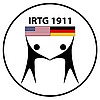MD/PhD 2 (2015 - 2017) - Immunoregulation of infection and inflammation in very-low-birth weight infants
Infectious diseases, particularly bacterial sepsis, are still one of the leading causes of mortality in neonates. They also contribute significantly to long-term morbidity. In general, gestational age and low birth weight are the main risk factors for infection in preterm infants. Further endogenous and environmental factors significantly contribute to the risk profile. Several aspects of neonatal immune responses which are relevant to the development of invasive infection are still poorly defined. Most previous studies focused on the “immaturity” of innate immunity, i.e. the quantitative deficiencies of neonatal immune responses to fight pathogens, as compared to adults. These observations include decreased levels of complement components, impaired function of neutrophils (i.e. phagocytosis, production of antimicrobial polypeptides, APP), antigen-presenting cells (i.e. cytokine responses) and immature formation of antigen-specific immune responses. However, the concept of “immaturity” or “deficiency” of immune responses in preterm infants has recently been challenged. The overall immunological profile of infants is now regarded as “functionally distinct” which probably better reflects the demands of the fetal environment and the need to avoid immune responses to maternal antigens (TH2/TH17-polarization). Furthermore, it is largely unknown to what extent microbiota structure interact with tissue-specific and systemic immune responses.
To develop new targets of prevention and therapy it is important to understand the specific impact of neonatal immune responses on outcome. This is a major goal of our project.
- Aim 1: We aim to describe immune responses in whole blood samples of infected versus non-infected preterm infants. We thereby focus on the ontogeny of immunological responses to important bacteria of outbreaks in NICUs including analysis of cytokine profiles and complement factors.
- Aim 2: We plan to investigate the role of C3 and C5 for innate immune responses in preterm infants including the interplay with nuclear oligomerization domain (NOD2, in which a polymorphism confers an increased risk for NEC/FIP requiring surgery) signalling.
- Aim 3: Moreover, we want to investigate innate immune responses of preterm infants under hypoxic conditions and elucidate metabolic activity (glycolytic capacity etc.).





